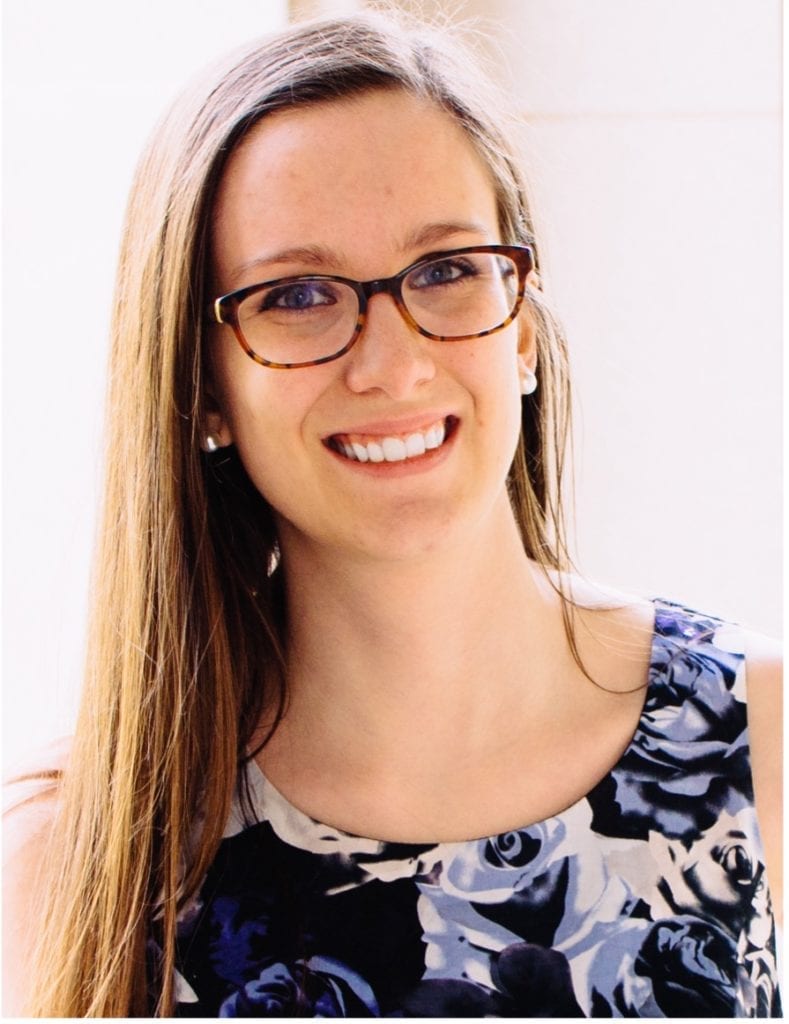Graduate student Maria McSharry explores the Science Education Journal Club and founder Danielle Spitzer’s efforts to promote evidence-based teaching strategies on campus.
One of many Zoom meetings I frequented this summer was the Science Education Journal Club. With my laptop perched on my knees, I gobbled up evidence-based teaching strategies presented by my peers in UC Berkeley’s Department of Molecular and Cell Biology (MCB), including the club’s founder, Danielle Spitzer. A leader from behind, Spitzer struck me as self-assured, graceful, and overwhelmingly passionate about pedagogy. Her commitment to effective teaching reflects the broader trend of STEM communities re-evaluating their approach to instruction.
Spitzer, an MCB graduate student, is an advocate for improving pedagogy in undergraduate institutions. In 2018, she launched the Science Education Journal Club with the goal of promoting evidence-based teaching strategies on campus. At that time, pedagogical instruction for graduate student instructors (GSIs) was minimal in the MCB department. She recalled her experience preparing for her position as a GSI, “I was aware of the state of the field in science education, and it didn’t seem to be something that people were really talking about.”

As an undergraduate at the University of North Carolina at Chapel Hill, Danielle spent four semesters as a supplementary instructor for an introductory genetics course. Her responsibilities involved interacting with students during lectures and hosting review sessions. That role immersed her in the benefits of effective teaching.
“The two professors that I worked with, Blaire Steinwand and Kelly Hogan, opened my eyes to all of the work that happens behind the scenes of teaching,” she said.
Her vision for better pedagogy followed her to graduate school. From her first year at Berkeley, Danielle wanted to discuss pedagogy with others. “Since undergrad, I’ve kept up with the literature,” she reflected. “And I’ve always wanted to talk to people about it.” In particular, she had a desire to work with those who were preparing to teach for the first time.
Each summer since its inception, the journal club has served as a casual platform for those who want to learn about teaching practices.
Attendees of the Science Education Journal Club tend to be self-motivated. Its behind-the-scenes organization is described by Spitzer as “low maintenance,” with a GoogleSheet of suggested papers and a column where participants can volunteer to present. Attendance averages between five and ten participants at any given meeting, representing various career stages — from first-year graduate students to postdoctoral candidates to visiting professors — as well as units across campus, including the Helen Wills Neuroscience Institute, Biophysics, and Computational Biology.
And she encourages anyone interested in pedagogy to drop in. “No one who comes to the journal club is an expert,” she said. “We’re all at various early stages of our understanding of [pedagogy].” The Science Education Journal Club is supported by the MCB department, which provides a small stipend for snacks, and Danielle promotes the club through the MCB listserv. But she warmly invites anyone who is interested to join, “if people wanted to come, they’d be welcome to.”
More training for trainees
This year, GSIs benefitted from a new formal pedagogical training course, MCB 375. “[The class] was highly requested on surveys of grad student wellness and desires – that they wanted more training for teaching,” Spitzer said. Spitzer also noted the efforts of fellow instructors Robin Ball, Robert Beatty, Alyssa Bormann, and Sophia Friesen, as instrumental in establishing the course. And the journal club was used as supporting evidence.
The formal teaching course lays a foundation in teaching practices. “There’s an obligation for the GSIs to be prepared to do their job,” Spitzer emphasized. “And they have an obligation to their students.” MCB 375 is widely influential in disseminating pedagogical ideas to all of the department’s GSIs, who are required to take the course.
Prior to 2020, GSI training consisted of a two-day conference and orientation focusing on various learning styles — such as binning students into learner categories like visual or kinetic — that has been “thoroughly debunked in literature,” according to Spitzer. The MCB department did not have an official pedagogy course for graduate students, which is required to achieve the Certificate in Teaching and Learning in Higher Education offered through the Teaching and Resource Center. So, Spitzer sought permission to take the course through another department.
“It makes me excited because it is more likely to be permanent than a journal club. They’re working on getting it to be a part of the actual graduate curriculum,” she said of MCB 375.

The journal club’s broad scope complements formal training in teaching. “They serve different niches,” Spitzer explained. Topics integrated into the 5-week MCB course must be succinct, but the casual format of the journal club allows for more exploration. “We read papers on anything under the sun if it’s related to undergraduate education,” Spitzer added. “One thing I really like about the journal club is it embodies this idea of a learning community where people are there because they want to be.”
Spitzer aspires to a teaching-focused career. She envisions a professorship with the opportunity to teach large-enrollment classes. “That scares a lot of people,” she acknowledged, “but it was influential for me to have some of my formative experiences in classes with 200 plus students.” She has seen active learning succeed in large lectures and endeavors to extend her experiences to others.
In considering the future of the Science Education Journal Club Spitzer noted, “As long as I’m around, I can make sure it continues to exist. I think the most important thing is that if there’s a need for it, I hope it exists.” But she continues to underscore the importance of formal educational training, “having the pedagogy course now exist is just so important.”
The Science Education Journal Club meets each summer. Interested graduate students, postdocs, visiting scholars, and other educators on campus are welcome to attend. Learn more by emailing Danielle at dspitzer@berkeley.edu.